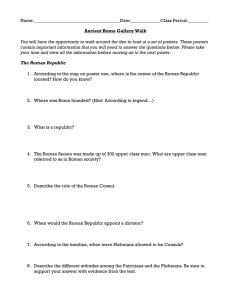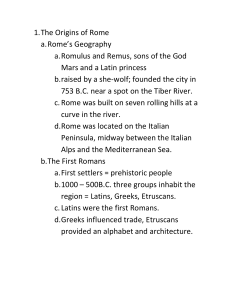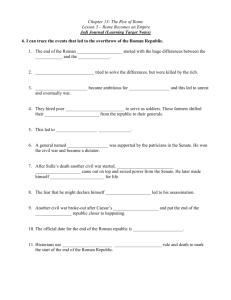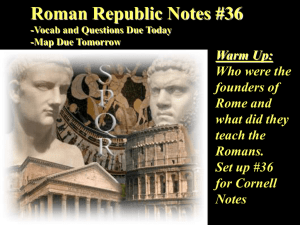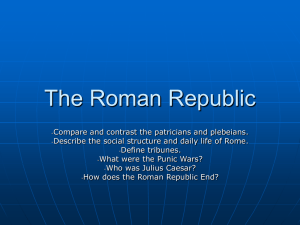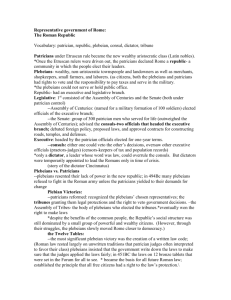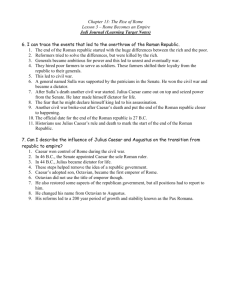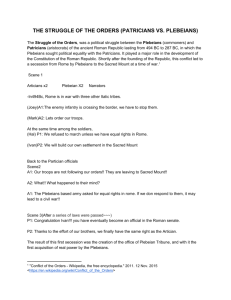Chapter 8 Section 1 Outline
advertisement
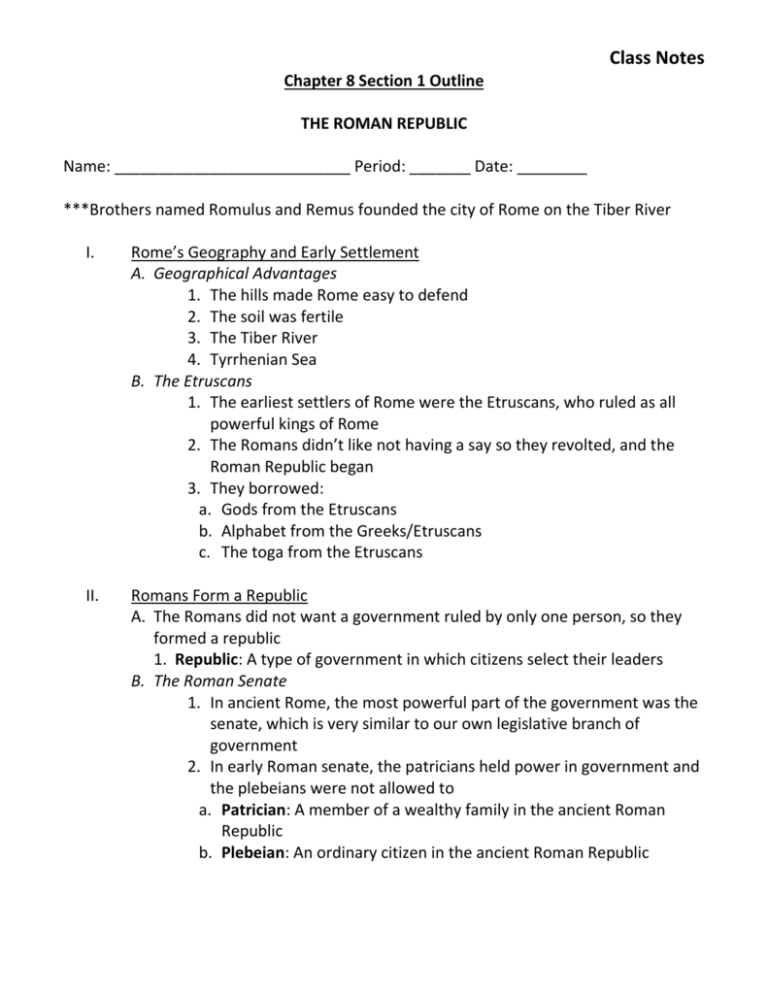
Class Notes Chapter 8 Section 1 Outline THE ROMAN REPUBLIC Name: ___________________________ Period: _______ Date: ________ ***Brothers named Romulus and Remus founded the city of Rome on the Tiber River I. Rome’s Geography and Early Settlement A. Geographical Advantages 1. The hills made Rome easy to defend 2. The soil was fertile 3. The Tiber River 4. Tyrrhenian Sea B. The Etruscans 1. The earliest settlers of Rome were the Etruscans, who ruled as all powerful kings of Rome 2. The Romans didn’t like not having a say so they revolted, and the Roman Republic began 3. They borrowed: a. Gods from the Etruscans b. Alphabet from the Greeks/Etruscans c. The toga from the Etruscans II. Romans Form a Republic A. The Romans did not want a government ruled by only one person, so they formed a republic 1. Republic: A type of government in which citizens select their leaders B. The Roman Senate 1. In ancient Rome, the most powerful part of the government was the senate, which is very similar to our own legislative branch of government 2. In early Roman senate, the patricians held power in government and the plebeians were not allowed to a. Patrician: A member of a wealthy family in the ancient Roman Republic b. Plebeian: An ordinary citizen in the ancient Roman Republic Class Notes C. The Roman Consuls 1. Two chief officials called consuls led the government, and they had equal power a. Consul: An elected official who led the Roman Republic 2. They were like our president, and were the chief executives 3. Their job was to enforce the Republic’s laws and policies 4. They were elected by the citizens and advised by the senate 5. Veto: The power of one branch of government to reject bills or proposals passed by another branch of government D. Other Important Officials 1. Dictator: A person in the ancient Roman Republic appointed to rule for six months in times of emergency, with all the powers of a king 2. Praetors: Judges in civil law trials (disputes over money, business, contracts,…) E. Patricians vs. Plebeians 1. The patricians and the plebeians had different interests. Since the patricians were in power, the plebeians formed groups to help themselves 2. The Laws of the 12 Tables: 12 tables, or laws, applied to all citizens. This helped the plebeians a little, but they never gained equal power Patricians Plebeians Class Notes F. Master of the Mediterranean 1. The Roman army conquered people all over the Mediterranean a. Carthage in North Africa b. Macedonia c. Gual (present day France) III. The Decline of the Republic A. Some leaders tried to give land to the plebeians, but the patricians tried to stop it by murdering the leaders B. Roman generals gathered their own armies to fight for power C. The Rise of Julius Caesar 1. Caesar was a smart leader. With all of his conquering, he gathered a lot of followers 2. He returned to Rome and became dictator 3. He ruled with much power, much of which he took from the senate D. The Death of a Dictator 1. He took over many offices, became the only consul, and a dictator for life 2. He tried to reorganize the government 3. Many senators thought they were being ruled by a king again, and did not like it 4. The senators assassinated him on March 15, 44 B.C. E. From Republic to Empire 1. Civil war followed Caesar’s death 2. Octavian took power after Caesar. He was given the title Augustus (meaning “highly respected”). He marked the end of the Republic and the beginning of the Empire
